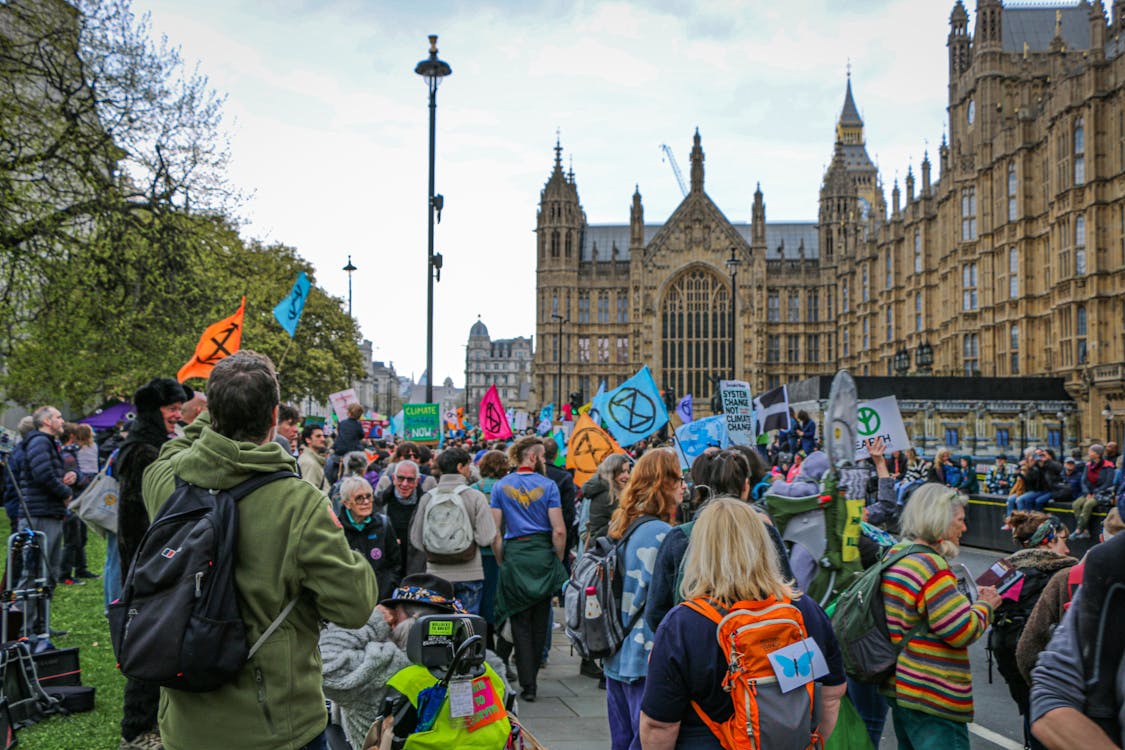
Although it is now four years into the 2020s, what do we really have to show for it? Temperatures soared to 40°C, the UK recorded its hottest year and a growing number of 3.26 million British households live in fuel poverty. Meanwhile, we are faced with an imminent general election opposing two parties that both fail to recognise the importance of immediate action against the growing climate crisis. The Earth is hotter than ever before, people’s budgets are tighter, and it feels as though we are left with only one constant throughout these times of rapid change: the Labour Party is as non-committal as ever.
The year is 1979. The first World Climate Conference is convened in Geneva. Scientists are warning countries across the globe of the incoming dangers of climate change. It is a new threat, but a threat, nevertheless. Across the pond, President Carter is pressingly signing legislation to tackle environmental issues, but Britain’s Iron Lady would not ‘turn green’ until the late 80s. This would prove to be Britain’s overarching approach to climate-related issues – always arriving late.
Almost five decades later, the climate crisis has gone from strength to strength – once passionate protestors have been left defeated, governments have proven incapable (or unwilling) to implement effective policies to tackle global warming, and the working-class families of the United Kingdom are footing the bill due to governmental failure.
The disappointing reality is that neither the Conservative government nor the Labour opposition are steadfast in their intention to tackle climate challenges. Rather, the government has found a convenient scapegoat in the working class. Although they have been proven to produce barely a fraction of carbon emissions – a report from Oxfam demonstrated that the poorest 50% were only responsible for 7% of annual global carbon emissions in 2015 – it is these same people that bear the brunt of most ‘green’ policies. ‘Clean Air’ taxes on vehicles in select zones of cities such as Birmingham, for example, tend to target working men and women mid-commute more than it does their wealthier bosses. The irony is that the latter are, not only, statistically more likely to be increasing emissions but, ironically, are also the people who can afford to pay such tariffs. In a world where travelling to work is a taxable expense, and heating your poorly built, rarely-insulated council home is a luxury, it is no wonder that the working class has turned against the environmental movement.
The United Kingdom is now well situated to pursue a cohesive green approach as the general election approaches in 2024. After 14 years of Conservative rule, the left-of-centre Labour Party is now sitting comfortably out of reach in the polls – with some surveys placing it 20 points clear of the collapsing Conservative Party. Rishi Sunak and Liz Truss – the latest entrants from the Conservative leader revolving door – have gone out of their way to decimate the economy, neglect the people’s will, and foster distrust amongst their party. A bright-eyed, bushy-tailed left-wing hopeful would perhaps take one glance at BBC News and rejoice: what revolutionary roads will Keir Starmer tread upon when he eventually commands such a powerful House of Commons majority? Rising from the Opposition despatch box and crossing the floor with the people’s approval behind him, Keir Starmer should undoubtedly be the man best placed to lead Britain to a Green revolution.
However, in a move which, arguably, could have been predicted by many, Labour’s Chancellor Rachel Reeves has now backpedalled from her ambitious 2021 commitment to invest £28 billion a year as a part of a revolutionary green prosperity plan. In what was initially a pledge to invest this sum as soon as the party were to take office – if Labour was to win the elections – it has now been watered down and pushed back from election to 2030; ultimately an abandonment of their green plan.
When the pledge was first announced at the Labour Party Conference in 2021, Reeves posited herself as the first ‘green chancellor’ of the United Kingdom. Sadly, she has since turned green at the prospect of the Conservatives using this policy against her. Combining a fear of failure and the inability to stand their ground, the Labour Party has since made a U-turn on their policy – citing Liz Truss’ economic failures as the reason for their inability to commit to such a strong course of action. Despite calls to stop this ‘environmentally irresponsible’ move, Starmer no longer believes a credible green plan is on the cards. What has been branded as an ‘environmentally irresponsible and politically jejune’ move by Labour MP Barry Gardiner, Starmer believes is a fiscal responsibility.
It is particularly ironic that our future Prime Minister would suggest the United Kingdom cannot afford a comprehensive green plan, but is happy to sit on the sidelines as our country’s working men and women foot the bill for the climate crisis.
Image: Tony Zohari, 2023 // Pexels License



Average Rating